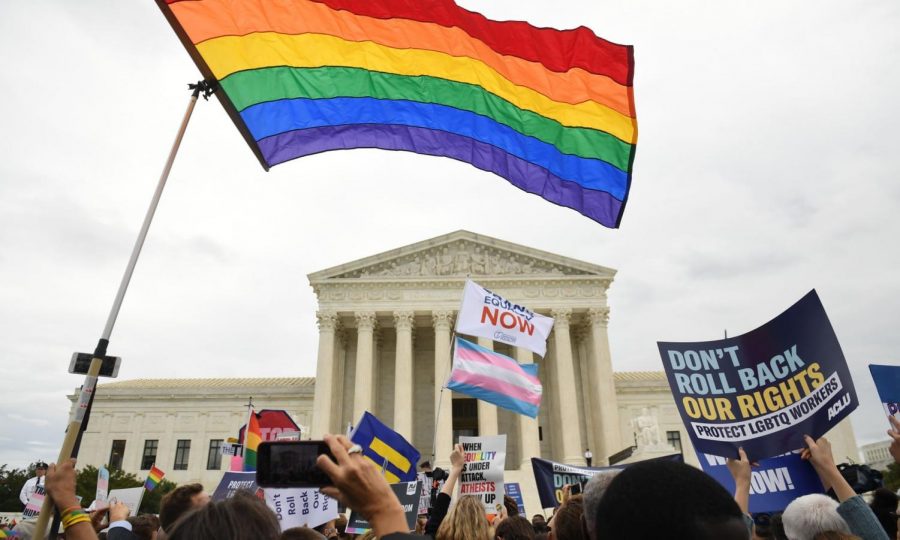Supreme Court discusses LGBTQ+ workplace discrimination laws
October 14, 2019
On Tuesday, Oct. 8, the Supreme Court of the United States heard oral arguments from cases involving job discrimination against members of the LGBTQ+ community.
The Supreme Court heard cases from New York, Georgia, and Michigan, in which the plaintiffs had been discriminated against based on their gender identity or sexuality. The plaintiffs in the first two cases were fired for coming out as openly gay in their occupations. A woman who was fired for being transgender was the third case that argued for gender identity. All three cases were advocating that the termination of their positions based on their gender or sexuality is discrimination on the basis of sex under the Civil Rights Act.
If the Supreme Court were to rule in favor of sex constituting sexual orientation than it would grant basic, nondiscriminatory protections for the LGBTQ+ community. Through the process of five lawyers and a two-hour session; sports, dress codes, religious objections, and bathrooms were touched on by the judges.
The EEOC states, “Title VII prohibits employment discrimination based on race, color, religion, sex and national origin.” It is an infringement to violate an individual’s right under these terms.
The first two cases were argued on behalf of Standford law professor Pamela Karlan. Karlan is an attorney for two men: Donald Zarad who worked at Altitude Express, and Gerald Bostock who was employed at a child-welfare services coordinator. Both had been fired by their employer for being openly gay.
Karlan asserted that discriminating against someone based on their sexual orientation was not possibly intended when the bar was passed in 1964. Thus, it had to be interpreted in today’s sense. Karlan said, “The attempt is futile because when a man is discriminated against for being gay, he is discriminated against for not conforming to an expectation about how men should behave.”
The third case was argued by David Cole of the American Civil Liberties Union. The case involved Aimee Stephens who was fired for coming out as transgender at a Michigan funeral home. Cole litigated on the basis of sex stereotyping and that Aimee, “was assigned male sex at birth, so she was fired because she failed to conform to the sex stereotypes of her employer.”
After hearing the cases made, the Supreme Court is waiting to decide on whether or not job discrimination based on sexuality and gender identity exceeds the bar set to be protected by Title VII of the Civil Rights Act of 1964 on the basis of sex. General Noel J. Francisco, who represented the Trump administration, was part of the opposition arguing that it should be up to Congress to change the law, which is a factor the Courts will look at in their decision process.
Justice Sonia Sotomayor said, “Title VII was born from a desire to treat people equally, but gay people are still being fired just because of their sexual orientation.”
It is only three years since the Obergefell v Hodges ruled the right to marry as a fundamental liberty, granted same-sex marriage to all 50 states. For the transcripts and audio recording of the hearing, follow this link: https://www.supremecourt.gov/






